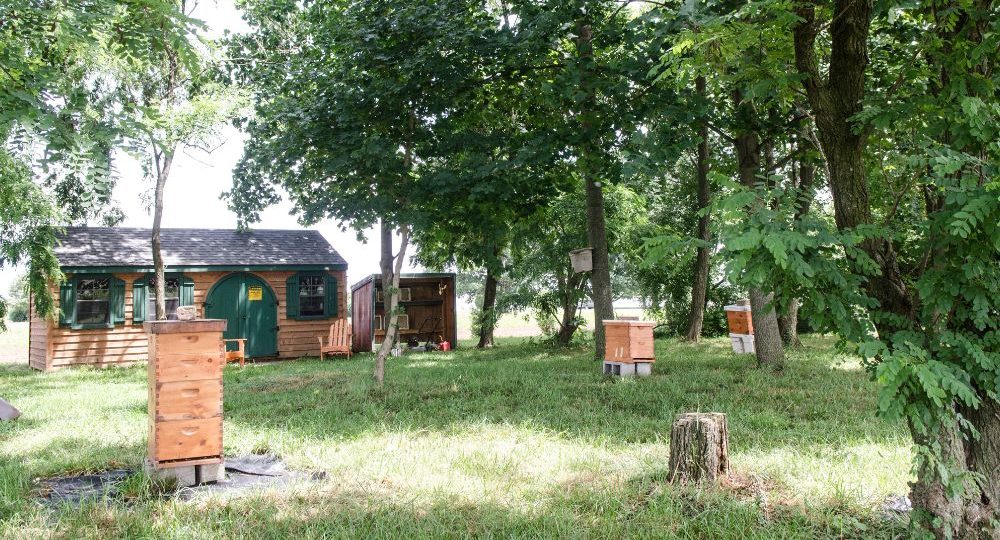
Educational Pollinator Garden

The plants in the University of Delaware Educational Pollinator Garden serve as a food bank for all kinds of flower-visiting insects.
Pollinators utlize rewards such as pollen and nector while other insects may eat the leaves of specific flowers or drinks the ploem of the plants. Predacious insects hide amongst the foliage to prey on other flower vistors.
What's in the garden?
Vistiors include aquatic insects from the surrounding wetlands and honey bees from the University of Delaware Apiary. You will often find treehoppers accompanied by ants warding off potential predators in order to consume their honey dew.
Syrphid flies are a diverse group of bee mimics that feed on nectar and pollen. These abundant flower visitors also play a key role in pollination. Detritivores spend much of their lives breaking down plant matter, which promotes fertile soil. You can find these insects under logs, leaf litter, and other plant debris.
Milkweed provides all sorts of food for both specialist and generalist insects. Food services include pollen and nectar rewards, foliage, xylem, phloem, and other hosted insects.



